Filter by

Palliative Care in Oncology
Palliative care provides comprehensive support for severely affected patients with any life-limiting or life-threatening diagnosis. To do this effectively, it requires a disease-specific approach as the patients’ needs and clinical context will vary depending on the underlying diagnosis. Experts in the field of palliative care and oncology describe in detail the needs of patients with advance…
- Edition
- -
- ISBN/ISSN
- 978-3-662-46202-7
- Collation
- XIII, 308 halaman
- Series Title
- -
- Call Number
- 616.994 PAL
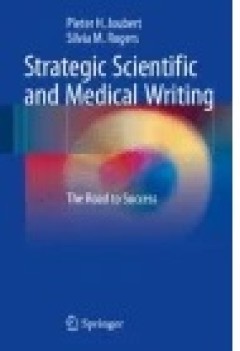
Strategic Scientific and Medical Writing
A document may be based on accurate medical and scientific information, follow guidelines precisely, and be well written in clear and correct language, but may still fail to achieve its objectives. The strategic approach described in this book will help you to turn good medical and scientific writing into successful writing. It describes clearly and concisely how to identify the target audience…
- Edition
- -
- ISBN/ISSN
- 978-3-662-48316-9
- Collation
- -
- Series Title
- -
- Call Number
- -
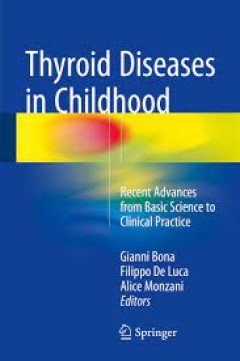
Thyroid Diseases in Childhood
This book covers the entire spectrum of thyroid diseases in childhood, focusing on the recent advances that have been achieved, from progress in basic science research through to novel or improved approaches to diagnosis and treatment. Introductory chapters discuss thyroid embryogenesis and the role of thyroid hormones in fetal development. The two contrasting forms of thyroid dysfunction, hypo…
- Edition
- -
- ISBN/ISSN
- 978-3-319-19213-0
- Collation
- 5 b/w illustrations, 10 illustrations in colour
- Series Title
- -
- Call Number
- -
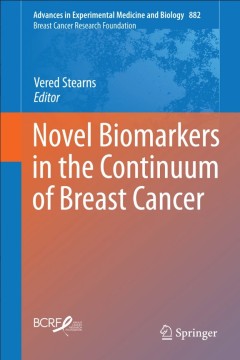
Novel Biomarkers in the Continuum of Breast Cancer
This volume provides a comprehensive review of established and novel biomarkers across the continuum of breast cancer. The volume covers topics related to breast cancer risk and prevention, prediction of response to today’s standard therapies, and markers capable of influencing treatment decisions in the near future. Chapter authors combine their wide-ranging expertise to review the current s…
- Edition
- 1
- ISBN/ISSN
- 978-3-319-22908-9
- Collation
- XIX, 279
- Series Title
- Advances in Experimental Medicine and Biology
- Call Number
- -

Non-melanoma Skin Cancer of the Head and Neck
Non-melanoma skin cancer is a global public health issue. With an ever-increasing, and ageing, world population coupled with increasing numbers of immunosuppressed individuals the number of patients continues to rise. The head and neck is overwhelmingly the most frequent location for the development of a non-melanoma skin cancer and as such challenges the clinician with its complex anatomy. The…
- Edition
- 1
- ISBN/ISSN
- 978-81-322-3444-9
- Collation
- XIX, 201
- Series Title
- Head and Neck Cancer Clinics
- Call Number
- -

Nanotechnology-Based Precision Tools for the Detection and Treatment of Cancer
This book discusses emerging nanotechnology-based tools that have the potential to dramatically impact cancer research, diagnostics, and treatment. Cancer is a complex, devastating, and debilitating disease and, although much progress has been made, novel, more effective diagnostic and treatment options are still needed, especially for advanced cancers. The ultimate goal is to detect cancer ear…
- Edition
- 1
- ISBN/ISSN
- 978-3-319-16554-7
- Collation
- X, 322
- Series Title
- Cancer Treatment and Research
- Call Number
- -
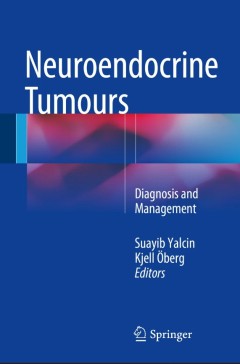
Neuroendocrine Tumours:Diagnosis and Management
This book is a timely textbook that covers all aspects of neuroendocrine tumors (NET) from epidemiology, pathological classification and evaluation and molecular biology through to diagnostic imaging methods and therapeutic options, including the latest targeted therapies. The various types of NET are individually discussed, including carcinoid tumors, insulinomas, gastrinomas, glucagonomas, VI…
- Edition
- 1
- ISBN/ISSN
- 978-3-662-45214-1
- Collation
- VII, 578
- Series Title
- -
- Call Number
- -
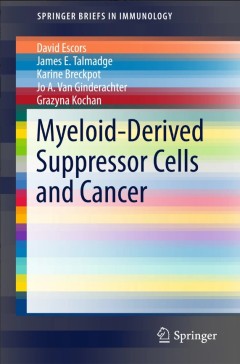
Myeloid-Derived Suppressor Cells and Cancer
The book starts with an introduction to and history of myeloid-derived suppressor cells (MDSCs), followed by a description of their differentiation, their role in the tumour microenvironment and their therapeutic targeting. It closes with an outlook on future developments. In cancer patients, myelopoiesis is perturbed and instead of generating immunogenic myeloid cells (such as dendritic cells,…
- Edition
- 1
- ISBN/ISSN
- 978-3-319-26819-4
- Collation
- IX, 102
- Series Title
- SpringerBriefs in Immunology
- Call Number
- -
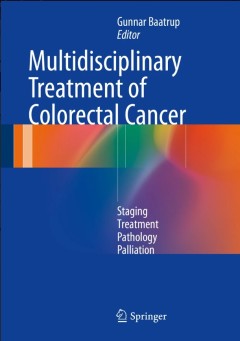
Multidisciplinary Treatment of Colorectal Cancer:Staging – Treatment – Pa…
This book is intended as the equivalent of the Swiss Army knife for all members of colorectal cancer (CRC) multidisciplinary teams and those training in the fields of CRC management. It describes how to organize the team and explains the basic principles within the different disciplines involved in the treatment and care of CRC patients. Important, up-to-date knowledge is provided on visualizat…
- Edition
- 1
- ISBN/ISSN
- 978-3-319-35716-4
- Collation
- XVII, 289
- Series Title
- -
- Call Number
- -
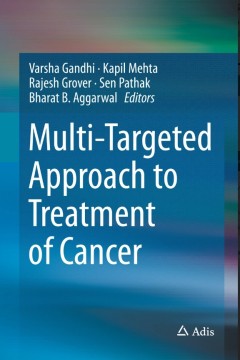
Multi-Targeted Approach to Treatment of Cancer
In this book, clinicians and basic scientists from USA, India, and other countries discuss the rationales and clinical experiences with targeted approaches to treat, prevent, or manage cancer. Cancer is a hyperproliferative disorder that is regulated by multiple genes and multiple cell signaling pathways. Genomics, proteomics, and metabolomics have revealed that dysregulation of dozens of genes…
- Edition
- 1
- ISBN/ISSN
- 978-3-319-35768-3
- Collation
- XIV, 410
- Series Title
- -
- Call Number
- -
 Computer Science, Information & General Works
Computer Science, Information & General Works  Philosophy & Psychology
Philosophy & Psychology  Religion
Religion  Social Sciences
Social Sciences  Language
Language  Pure Science
Pure Science  Applied Sciences
Applied Sciences  Art & Recreation
Art & Recreation  Literature
Literature  History & Geography
History & Geography